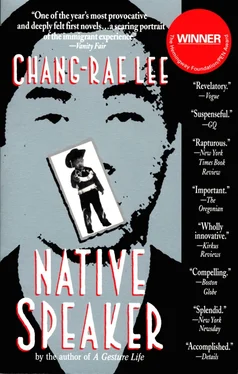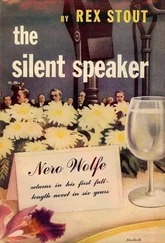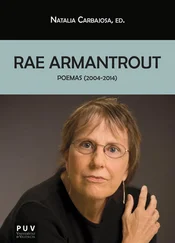“To some.”
“He’s not to me,” she says harshly. “But the situation is getting critical. You can be a lifelong saint, but in politics you’ve only got a few days of disaster. Any more of this and we could be finished. He likes you and I think you can help him.”
“I’m not sure I’m the one,” I tell her.
“What does that matter?” she cries, her eyes sparkling, dark. “You’ve become important to us. That Peruvian thing you handled like a pro. And then the immigration mess with the six Haitians. You made it possible for John to help. Everyone he talks to in the office gives you a good report. Even Jenkins.”
She suddenly turns quiet, inches closer. Touches my shoulder as she talks. I don’t move.
“You know, now with Eduardo gone you’ll have to do more. I know you’re some kind of freelancer, but we’re thinking about putting you on, full-time, if you need it that way. You relate well to strangers and constituents. People immediately trust you. You seem to understand what they need. That’s a valuable asset in our work. You could work with me and John more closely. He likes the idea. We talked about you last week.”
“What about Janice?”
“I already spoke to her,” Sherrie says intently. “You’re being wasted with her. She really only needs bodies, bulk. Let’s face it, that’s not you. This would be a great opportunity. You’re not twenty-five anymore.”
“You mean like you and Janice.”
“Ha, ha,” she groans, showing her straight teeth. Just now I can hear the scantest inflection of her Chinese, that rampant hyawr sound.
“Janice might be. I’m almost thirty-five. Ancient. God, I can’t even imagine kids. I’m just saying, you don’t seem to have a career you desperately love. I don’t know how much you can make with your work writing bit articles.”
I tell her, “I’m already past the time I should have left.”
Sherrie frowns. “So what? One article you’ve got. Big deal. If we can get over this, John’s going to be around for a long, long time. I don’t have to tell you, you’re smart, you think about it. We can all go right to the top. Even two Koreans and a Chinese. See what John says. And you better tell me soon if you’re going to leave.”
“I will.”
“Good,” she says, stepping away. “Don’t make a mistake with your life, Henry Park.”
I leave the house late in the evening. John hasn’t made a statement yet and he’s threatened to fire anyone who makes one for him. Outside the house a few reporters are still lingering. I walk quickly down the street before they can catch up to me, and flag a cab to take me to the subway station. The car stops and before the driver unlocks the doors he leans over and checks me. Yesterday a few Asian men were arrested for cabbie murders in Queens. Through the window glass I tell him the subway station at 45th Road but he shakes his head at me and so I say Manhattan instead. He nods. As I get in I notice a snub-nosed revolver shoved next to him in the seat. On any night someone in this city could put a bullet in his head for $30. So he drives with a gun, though I think he must know no weapon can save him. Maybe the pictures of his children on the dash can, maybe God can. The scent infuser is gushing lavender and bougainvillea, so heavily that I can almost see the flow, and on the radio someone is speaking a kind of French, though more grandly Latinesque, the beat honeyed and calyptic; this is a Haitian ship. The driver checks me in the rearview mirror and I hold up my hands so he can see. He laughs big and turns up the music, half relieved, half embarrassed, and I think with him, One less good fare to get tonight .
He takes us west at an amazing speed. We almost clip everything, hurtling by a hundred near-disasters. Somehow I think I’m safe in this vessel, though I wouldn’t mind actually hitting something, as if that might confirm the real dangers in the world. All evening I’ve been locked inside myself, playing these hypothetical games of confidence and chance, thinking of the firebomb and why it happened and who could have left the scene with a light burning in his hand. There are always untenable events, freak happenings like someone recognizing you, or at worst, the trouble results from a foolish and negligent spy, like my time with Luzan.
But here a bomb goes off , crude as it is. A bomb means that there’s too much care involved, even if you mean to kill. Jack himself always said that when you make a bomb you are also constructing a statement, employing a more complicated grammar than is required. It’s the way civilized man now encumbers his territory, not with great walls or stretches of wire but with a single well-placed device, a neat bundling with the workings of a mind. It reads time, speaks volumes. Long after the flash, the concussive burn, it will speak to you again, at your fine desk, in your fine bed. Saying these are your certain ruins.
* * *
The next day the older boy, Peter, is upstairs in the office. He sits at his father’s desk, scrawling away importantly on the office stationery with a fat black fountain pen. I stay in the doorway.
“Hello,” I say.
“Hello,” Peter replies, still writing, not looking up. The young man of the people. He says, “Please feel free to sit down, anywhere you want. Is the councilman expecting you?”
“Yes, I believe so.”
“Very good.”
He finally finishes his work and sighs. Looks up, Kwang-style, the face wholly open, as if he’s about to smile, but he sees me and bounces up from the seat. He bows his head sharply and fumbles out, “ Me-yahn-ney-oh, ah-juh-shih.” I’m very sorry, sir .
“ Gaen-cha-nah ,” I mutter, chuckling, telling him it’s okay. I put out my hand. “ Yuh-gi ahn-juh.” Come here and sit .
He comes around the desk and sits upright in the wing chair beside mine. His straight black hair is bowl-cut. The bridge of his nose hasn’t yet pushed out. The arms at attention, the eyes ever lowered, a venerating bend to his head. He waits for me to address him. From his earliest moments he knows to be like this before an elder.
He is so much like me when I was ten, so unlike our Mitt, whom Lelia and my father and I let raucously trample over all our custom and ceremony. Our Mitt, untethered. He’d tug at my father’s pant legs during church sermons, roam the shadows of restaurant tables, publicly address his mother by her given name: all these spoils of our American life. And despite Lelia’s insistence that he go to Korean school on the weekends, I knew our son would never learn the old language, this was never in question, and my hope was that he would grow up with a singular sense of his world, a life univocal, which might have offered him the authority and confidence that his broad half-yellow face could not. Of course, this is assimilist sentiment, part of my own ugly and half-blind romance with the land.
Peter and I possess a similar command of Korean, though perhaps his grasp is slightly better, his bah-rham or accent, or, literally, “breeze,” is more authentic, still deeply redolent of the old country. Perhaps in twenty years his Korean words will creep out like mine, the notes uncertain, tentative. When I step into a Korean dry cleaner, or a candy shop, I always feel I’m an audience member asked to stand up and sing with the diva, that I know every pitch and note but can no longer call them forth.
We talk baseball, the opening of the new season. The Yankees finally have some pitching. The Mets are sliding fast. We hate, hate Boston and St. Louis. Out of respect he tries to speak as much Korean as he can, and I don’t let him know his rapid speech is variously lost on me. I listen and keep nodding, and ask in English what position he likes to play. He says he plays second base. What do you want to play, is the question. He curls one foot behind the other, bites his lip, and whispers: shortstop.
Читать дальше












